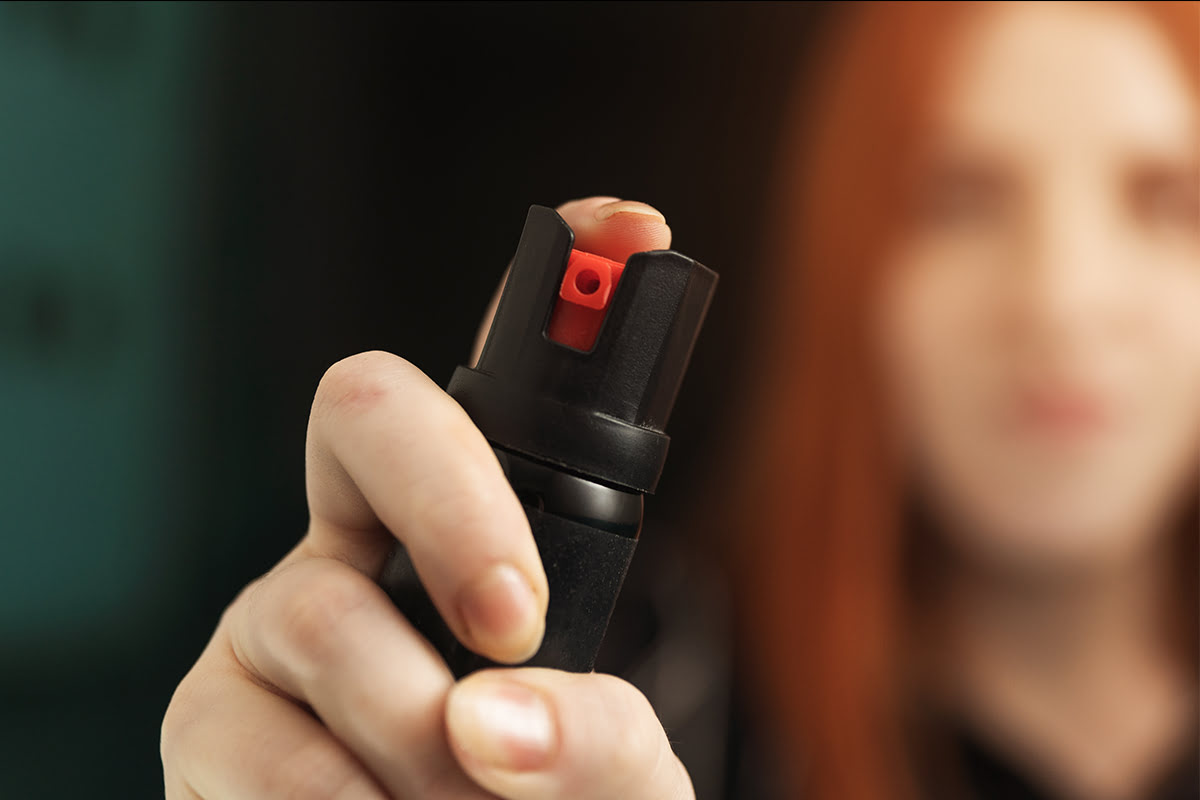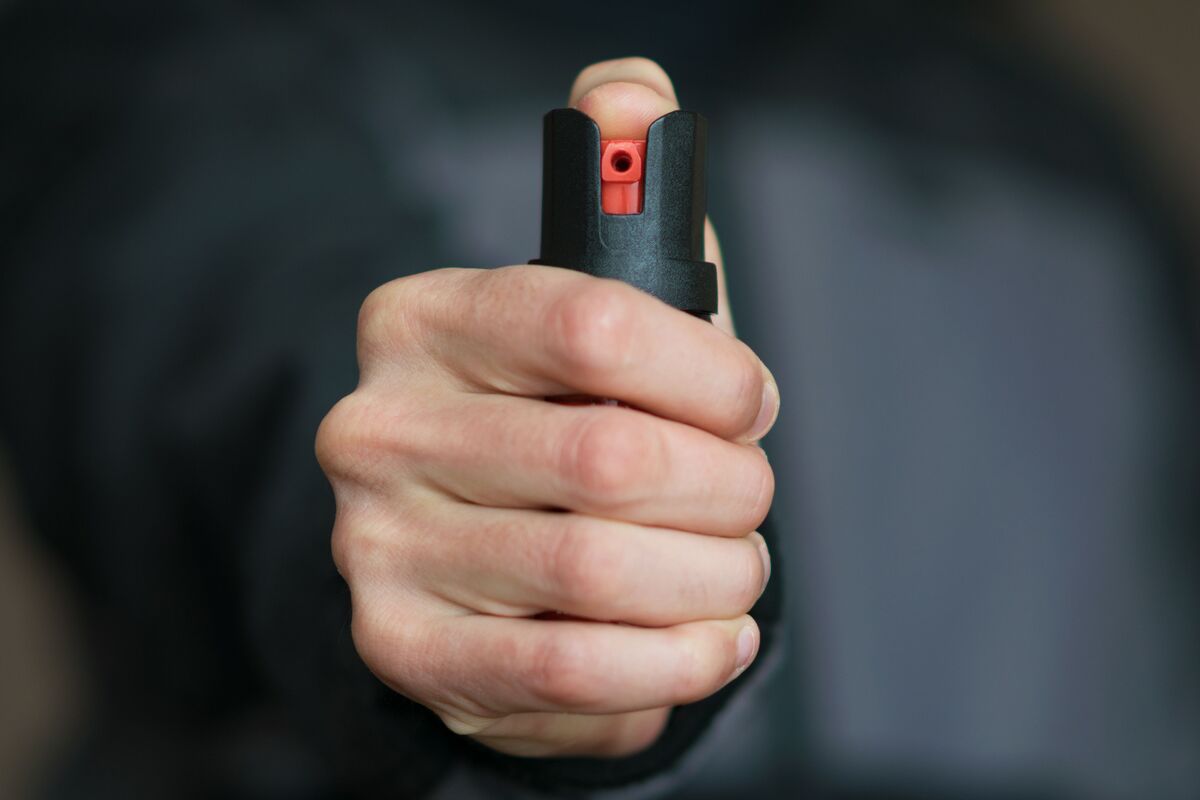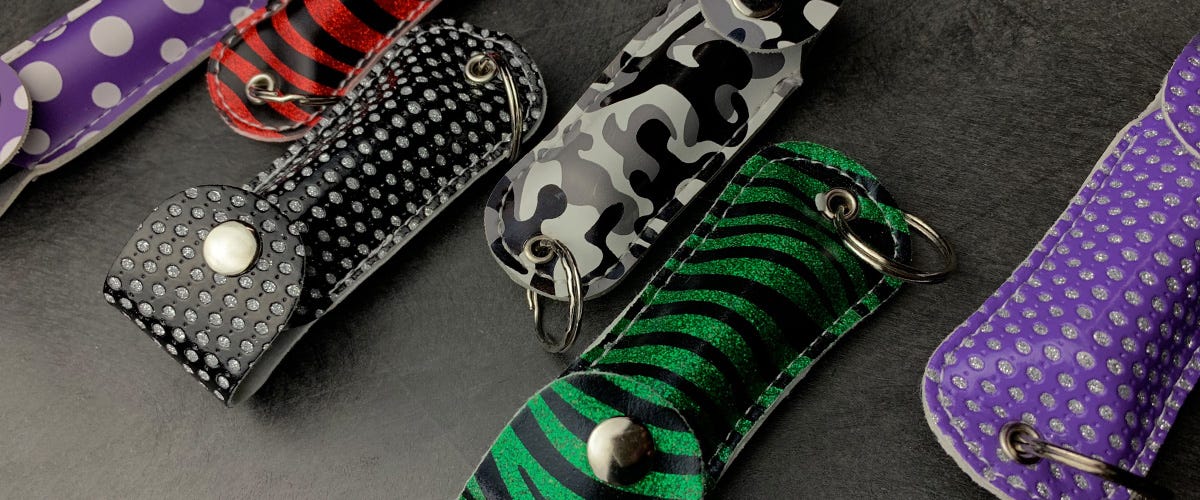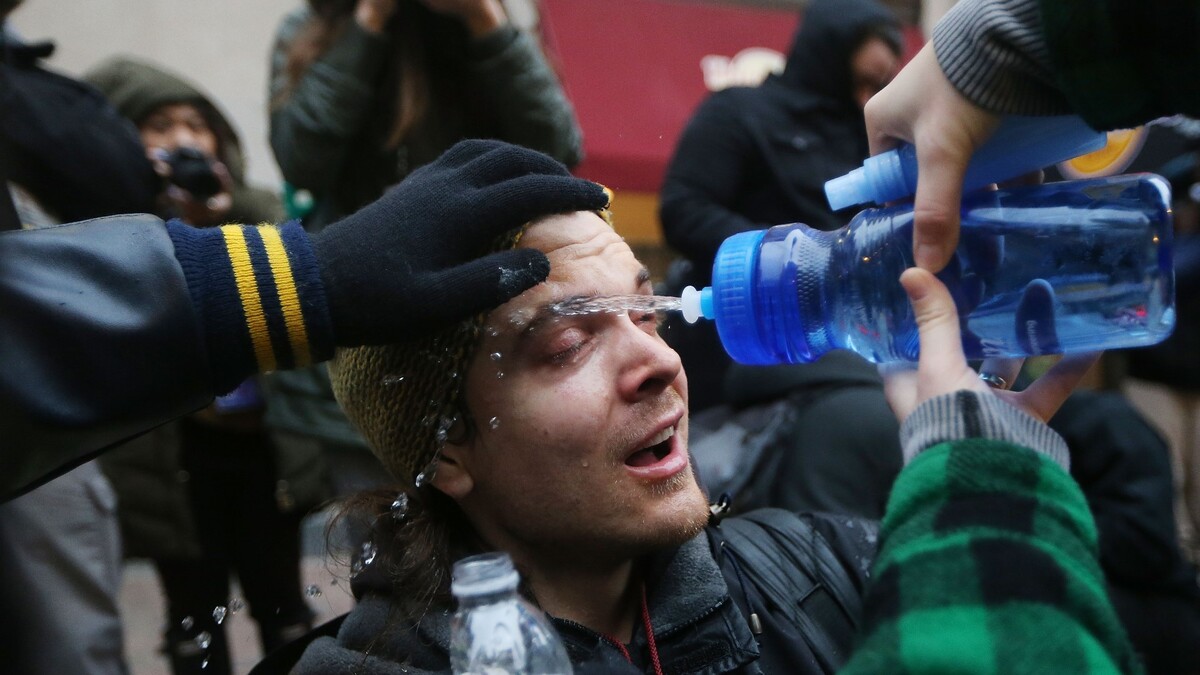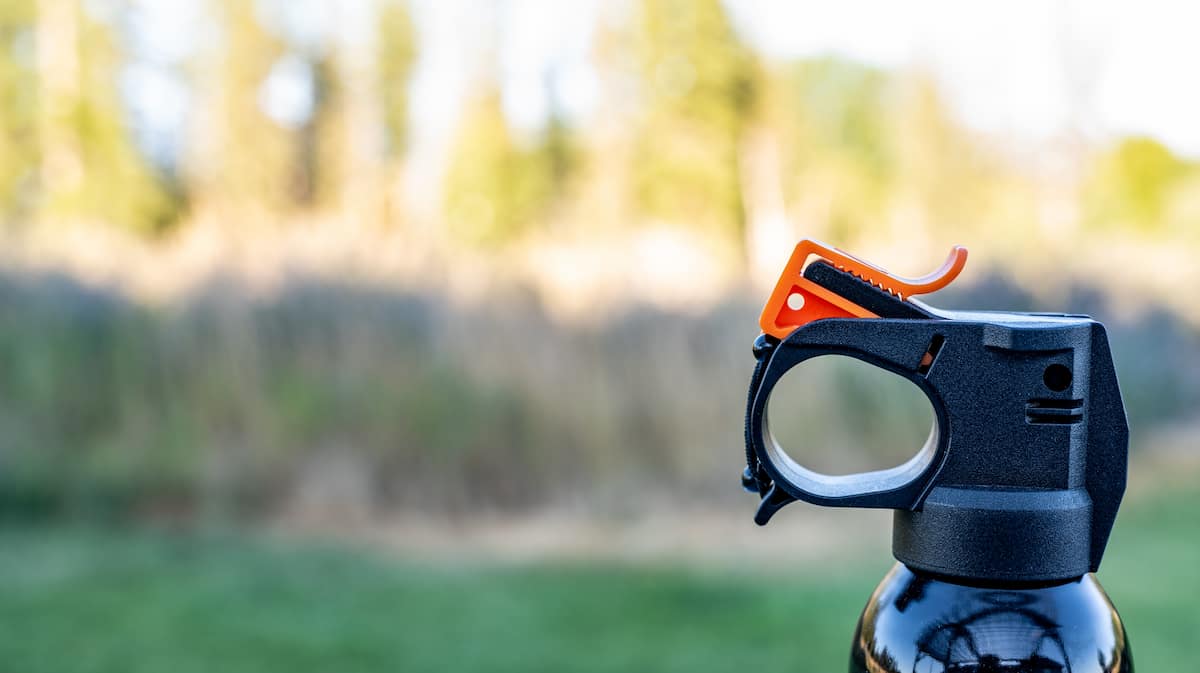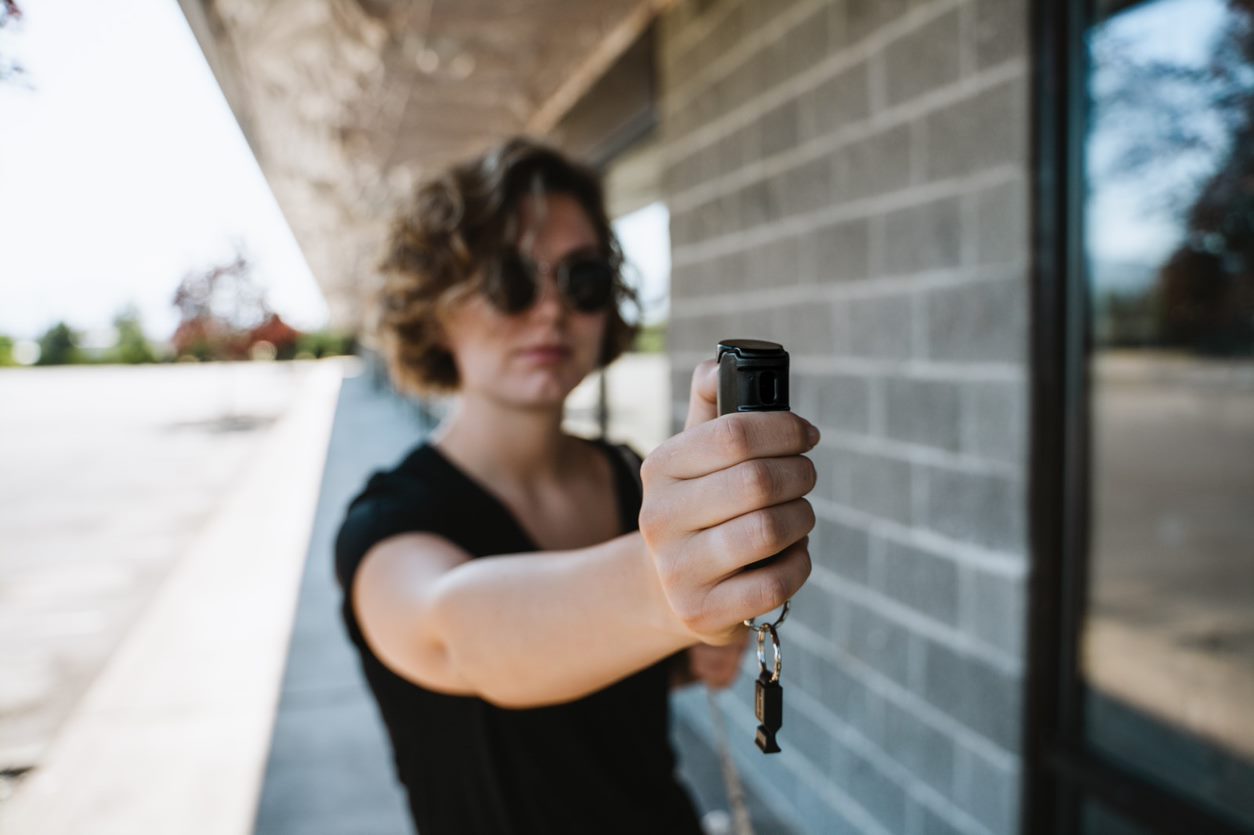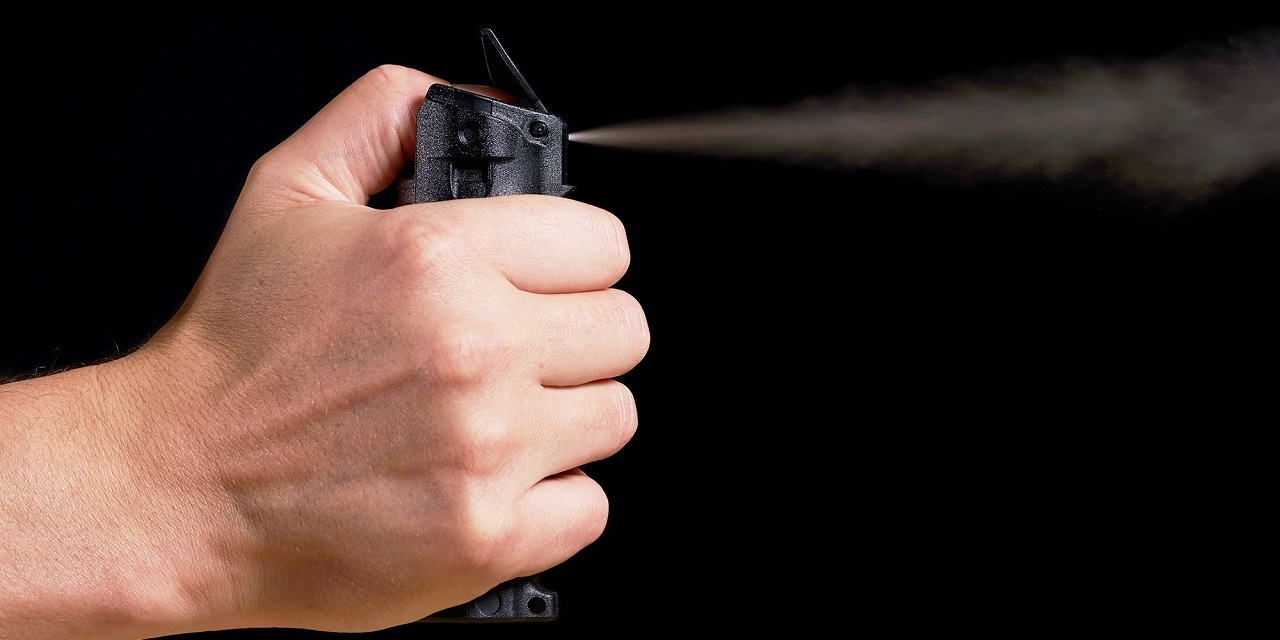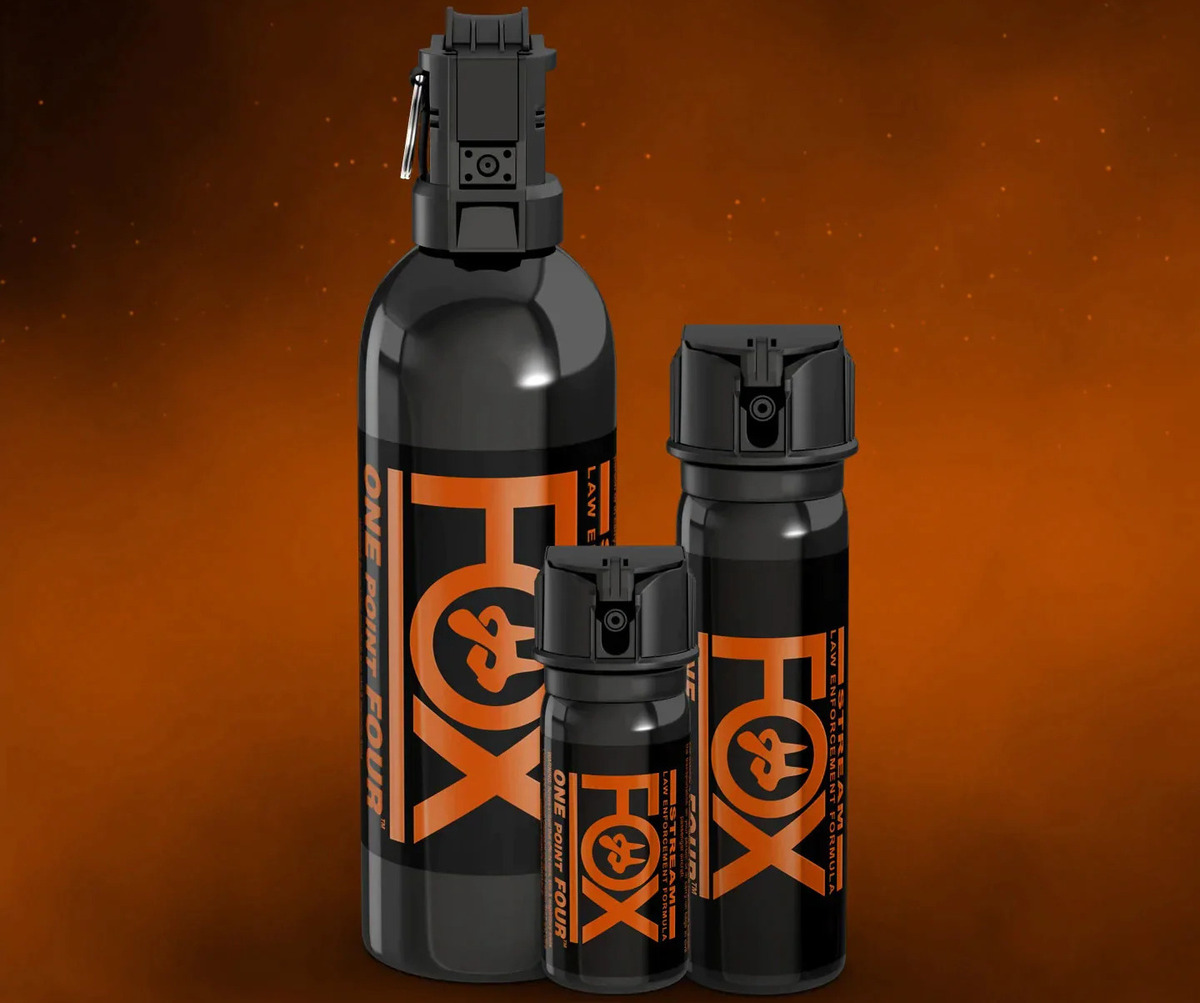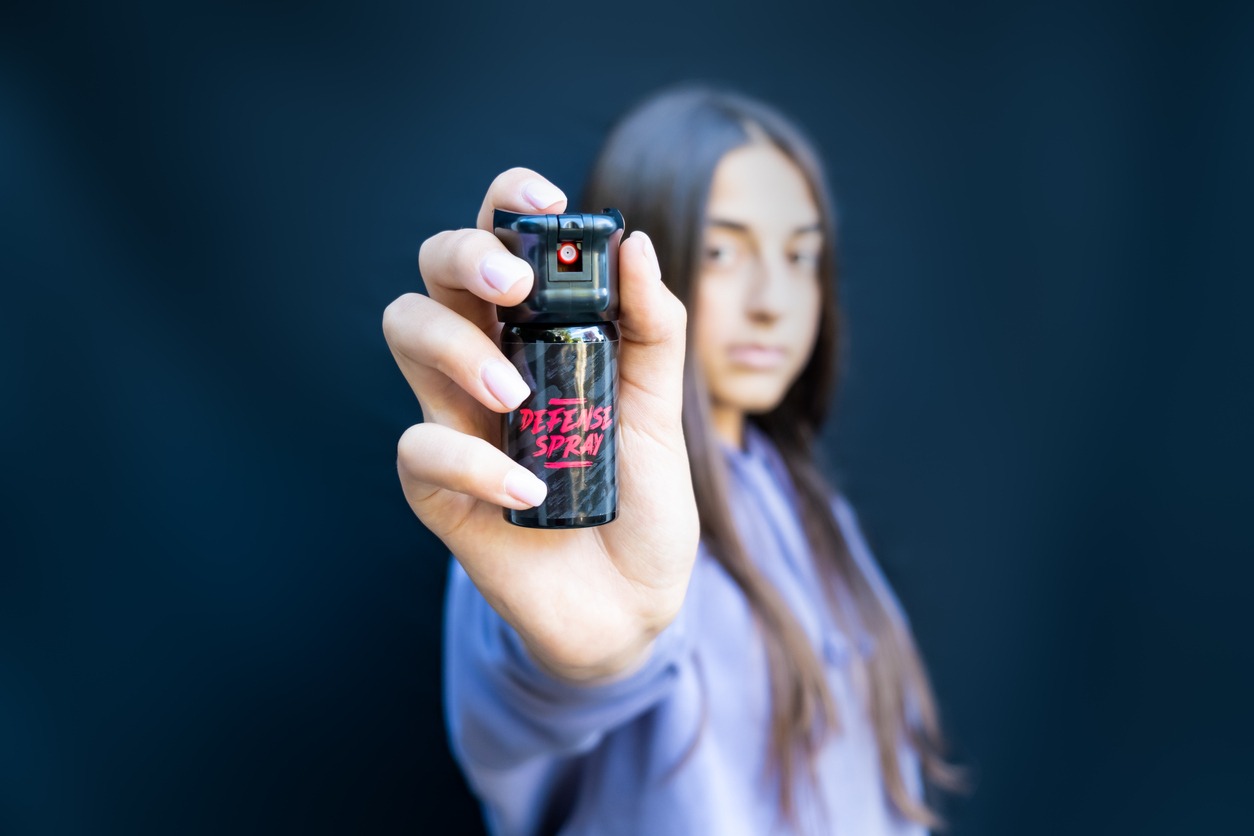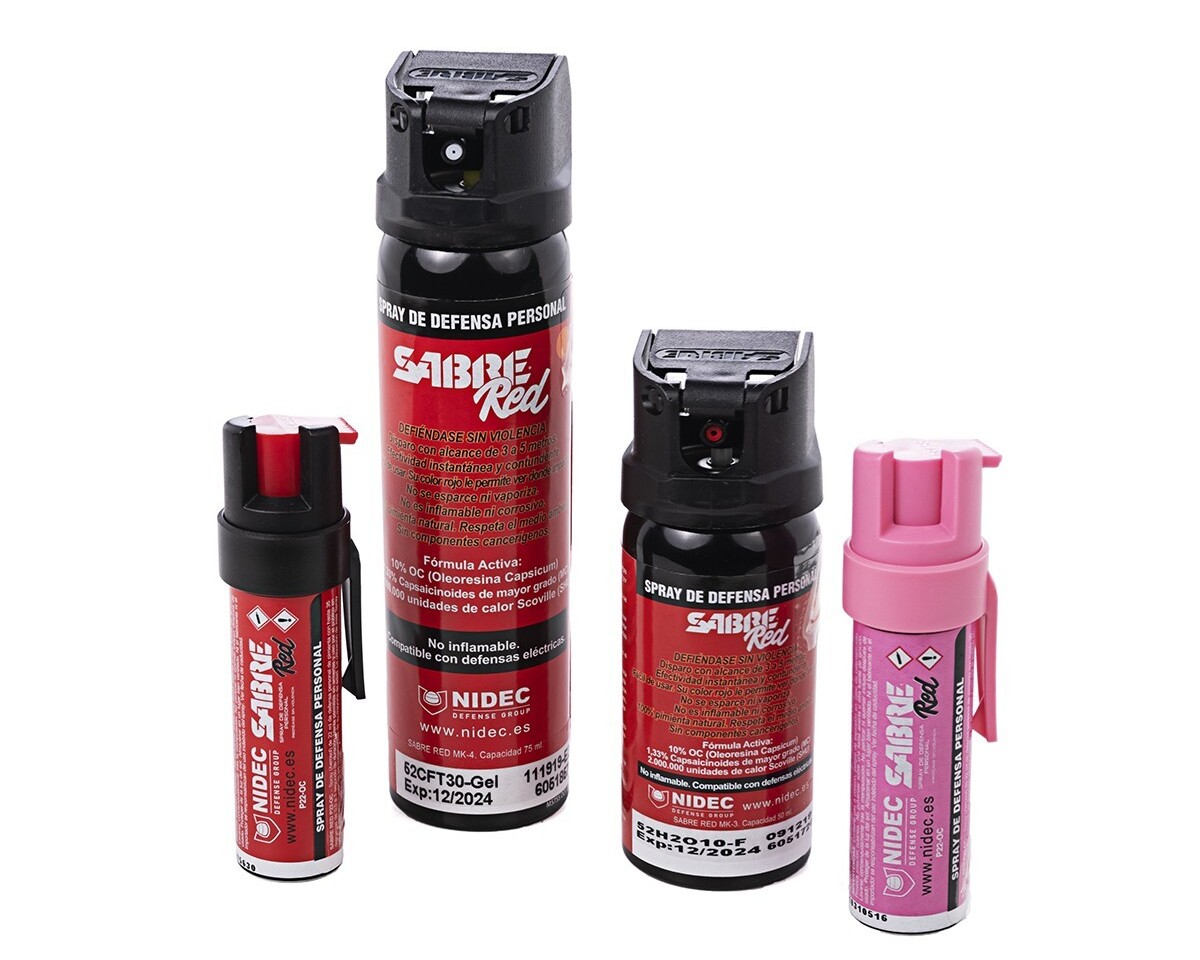Home>Home Security and Surveillance>Which Is Better: Pepper Spray Or Pepper Gel
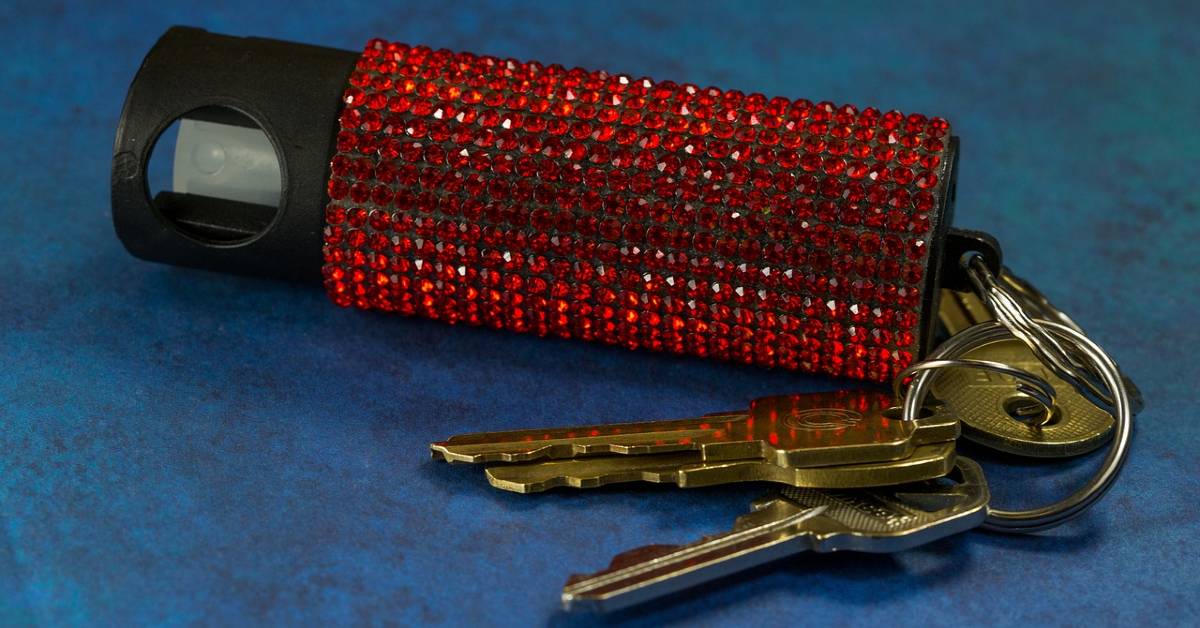

Home Security and Surveillance
Which Is Better: Pepper Spray Or Pepper Gel
Modified: March 6, 2024
Discover which is more effective for home security and surveillance: pepper spray or pepper gel. Learn the pros and cons of each to make an informed decision to protect your loved ones.
(Many of the links in this article redirect to a specific reviewed product. Your purchase of these products through affiliate links helps to generate commission for Storables.com, at no extra cost. Learn more)
Introduction
Welcome to the world of self-defense and personal safety. In an uncertain and ever-changing world, it is essential to take precautions to protect ourselves and our loved ones. One effective method of self-defense is the use of pepper spray or pepper gel. These non-lethal weapons have gained significant popularity due to their ability to temporarily incapacitate an attacker, giving you precious time to escape and seek help.
In this article, we will explore the differences between pepper spray and pepper gel, their mechanisms of action, advantages, and disadvantages. By the end, you will have a better understanding of which option might be better suited to meet your personal security needs.
Key Takeaways:
- Pepper spray offers wider coverage and affordability, while pepper gel provides increased range, accuracy, and reduced risk of blowback. Choose based on your comfort, environment, and legal considerations.
- Both pepper spray and pepper gel offer non-lethal self-defense options, giving you time to escape and seek help. Prioritize personal safety, practice awareness, and choose the option that aligns with your needs and local laws.
What is Pepper Spray?
Pepper spray, also known as OC spray (Oleoresin Capsicum), is a non-lethal self-defense tool that contains a concentrated form of pepper extract. It comes in a small canister, which can be easily carried in a purse, pocket, or attached to a keychain for quick access.
The main active ingredient in pepper spray is Capsaicin, derived from chili peppers. When sprayed onto an assailant, it causes intense irritation and inflammation of the eyes, nose, and throat, resulting in temporary incapacitation. The effects of pepper spray can last for approximately 30 minutes, allowing you ample time to escape from an attacker.
Pepper spray is available in various formulations, ranging from mild to extremely potent. The Scoville Heat Units (SHU) indicate the strength of the spray. The higher the SHU value, the more potent the pepper spray.
It is important to note that pepper spray is legal in most states, but there may be restrictions on its use and purchase. Before obtaining pepper spray, it is crucial to familiarize yourself with local laws and regulations.
How Does Pepper Spray Work?
Pepper spray works by targeting the sensory systems of an attacker, causing temporary incapacitation. When sprayed, the small particles of the pepper extract disperse in the air, making contact with the eyes, nose, and mouth of the assailant.
Upon contact, the capsaicin in the pepper spray triggers an intense burning sensation in the eyes, causing immediate closure and temporary blindness. The capsaicin also irritates the respiratory system, leading to coughing, shortness of breath, and a feeling of choking.
As a result, the assailant’s ability to see and breathe becomes severely impaired, rendering them unable to continue the attack. The effects of pepper spray can last for up to 30 minutes, giving you ample time to escape and seek help.
The intensity of the effects depends on the concentration of capsaicin in the spray, as well as the distance and accuracy of the application. It is crucial to aim for the face of the attacker, specifically targeting the eyes, nose, and mouth for maximum effectiveness.
It is important to remember that while pepper spray is an effective self-defense tool, it is not guaranteed to incapacitate an attacker completely. The effectiveness may vary depending on factors such as the attacker’s tolerance to pain, alcohol or drug influence, and other personal factors.
Advantages of Pepper Spray
Pepper spray offers several advantages as a self-defense tool:
- Easy to Use: Pepper spray is simple and straightforward to use, even for individuals with little to no self-defense training. Its compact size and ease of deployment make it accessible in high-stress situations.
- Non-Lethal: One of the major advantages of pepper spray is that it is a non-lethal form of self-defense. It incapacitates the attacker temporarily, providing you with an opportunity to escape and seek help, without causing permanent harm or loss of life.
- Wide Range of Options: Pepper spray is available in a variety of sizes, formulations, and delivery methods, allowing you to choose one that suits your personal preferences and needs. Whether you prefer a compact keychain spray or a larger canister for home defense, there are plenty of options available.
- Affordable: Pepper spray is relatively inexpensive compared to other self-defense alternatives. It provides a cost-effective means of enhancing personal safety without breaking the bank.
- Immediate Effectiveness: Pepper spray works quickly, with its effects being felt almost instantly upon contact. This immediate response can surprise and disorient an attacker, providing you with an advantage in a dangerous situation.
- Legal and Widely Available: In most states, pepper spray is legal to possess for self-defense purposes. It is readily available at many retail stores, online platforms, and self-defense shops, making it easily accessible for those seeking personal protection.
However, it is important to note that pepper spray does have some limitations, and its effectiveness may vary depending on a variety of factors. It is crucial to carefully consider these factors and weigh them against your specific needs and circumstances before relying solely on pepper spray as your self-defense option.
Disadvantages of Pepper Spray
While pepper spray is a popular self-defense tool, it is important to be aware of its limitations and potential drawbacks:
- Limited Range: Pepper spray typically has a limited effective range, usually ranging from 6 to 12 feet. This means that you need to be in close proximity to your attacker for it to be effective. It is crucial to be aware of this limitation and ensure you are within range to effectively deploy the spray.
- Wind and Environmental Factors: Pepper spray can be affected by environmental conditions such as wind or rain. If the wind is blowing in your direction, the spray may be blown back at you, reducing its effectiveness and potentially affecting your own ability to escape.
- Ineffectiveness on Intoxicated/Chemically Influenced Individuals: The effectiveness of pepper spray can be diminished when used against individuals who are under the influence of alcohol, drugs, or other substances. Their impaired sensory perception may reduce the impact of the spray, making it less effective in deterring an attack.
- Risk of Accidental Discharge: Accidental discharge is a potential risk when carrying pepper spray. Without proper precautions, you may accidentally activate the spray, causing unintended harm to yourself or innocent bystanders. It is crucial to handle and store pepper spray responsibly to minimize this risk.
- Limited Multiple-Use Capacity: Most pepper spray canisters have a limited number of uses before they need to be replaced or refilled. Depending on the brand and size, the number of uses can range from a few to several bursts. It is important to monitor the canister’s expiration date and replace it when necessary.
- Possible Legal Consequences: While pepper spray is generally legal to possess for self-defense purposes, there may be restrictions on its use in certain locations. It is vital to familiarize yourself with local laws and regulations to ensure you are using the spray responsibly and within the bounds of the law.
Considering these disadvantages, it is important to weigh them against the advantages and your personal circumstances when deciding if pepper spray is the right self-defense option for you.
Read more: Which Is Better Memory Foam Or Gel Foam
What is Pepper Gel?
Pepper gel is a variation of pepper spray that offers an alternative to the traditional aerosol-based spray. Rather than dispersing in the air like spray, pepper gel is a thick, sticky substance that adheres to the target upon contact.
The main active ingredient in pepper gel is also Capsaicin, derived from chili peppers, just like in pepper spray. However, the gel formulation allows for better accuracy and reduced risk of blowback in windy conditions.
Pepper gel typically comes in a canister similar to pepper spray and is available in various sizes for different purposes. It is commonly used by law enforcement agencies, security personnel, and individuals seeking a reliable self-defense option.
It is important to note that pepper gel is legal in most states, but as with pepper spray, there may be restrictions on its use and purchase. Familiarize yourself with local laws and regulations before obtaining pepper gel.
When choosing between pepper spray and pepper gel, consider the range and wind conditions. Pepper gel is less likely to blow back in your face and has a longer range, making it a better option for outdoor use.
How Does Pepper Gel Work?
Pepper gel operates on a similar principle as pepper spray, but with a slightly different mechanism of action. When sprayed, the gel formula projects a thick, sticky stream towards the target. Upon contact, the gel adheres to the attacker’s face, creating a barrier that is difficult to wipe off.
The main active ingredient in pepper gel, like in pepper spray, is Capsaicin. When the gel comes into contact with the eyes, nose, and mouth, it causes severe irritation and sensory overload. The capsaicin triggers intense burning, tearing, and difficulty in breathing, temporarily incapacitating the attacker.
One significant advantage of pepper gel over pepper spray is its reduced risk of blowback. The gel formulation minimizes the chance of the wind blowing the spray back towards you, ensuring that the full force of the gel is directed towards the assailant.
Another advantage of pepper gel is its increased range and accuracy compared to pepper spray. The gel can be projected in a focused stream, allowing for precise targeting at a distance of up to 20 feet. This extended range provides additional security and confidence in self-defense situations.
Furthermore, the sticky nature of pepper gel ensures that it stays in place upon contact, making it more difficult for the assailant to remove or wipe off. This prolonged adherence increases the overall effectiveness of the gel, providing a longer-lasting deterrent to the attacker.
It is important to keep in mind that the effectiveness of pepper gel can still vary depending on factors such as the attacker’s tolerance to pain, drug or alcohol influence, and other personal factors. It is crucial to aim for the attacker’s face, specifically targeting the eyes, nose, and mouth for optimal results.
Advantages of Pepper Gel
Pepper gel offers several advantages as a self-defense tool:
- Increased Range and Accuracy: Pepper gel has a longer effective range compared to traditional pepper spray. With its focused stream, it can reach targets up to 20 feet away, allowing you to maintain a safe distance while effectively incapacitating an attacker.
- Reduced Risk of Blowback: The gel formulation of pepper gel reduces the risk of blowback, making it a more reliable option in windy conditions. The gel sticks to the target upon contact, minimizing the chance of it being blown back towards you.
- Sticky Adherence: The sticky nature of pepper gel ensures that it stays in place upon contact with the target, making it difficult for the assailant to wipe it off. This prolonged adherence increases the overall effectiveness of the gel and provides a longer-lasting deterrent.
- Accuracy: The gel stream of pepper gel allows for better accuracy compared to spray. The controlled projection enables you to aim precisely at the attacker’s face, increasing the chances of hitting the eyes, nose, and mouth for maximum effect.
- Non-Lethal: Just like pepper spray, pepper gel is a non-lethal self-defense option. It incapacitates the attacker temporarily, giving you an opportunity to escape and seek help without causing permanent harm or loss of life.
- Legal and Widely Available: Pepper gel is generally legal to possess for self-defense purposes in most states. It is readily available at many retail stores, online platforms, and self-defense shops, making it easily accessible for those seeking personal protection.
Considering these advantages, pepper gel presents itself as a viable alternative to traditional pepper spray for individuals looking for increased range, accuracy, and reduced risk of blowback.
Disadvantages of Pepper Gel
While pepper gel offers several advantages, it is important to be aware of its potential drawbacks:
- Price: Pepper gel tends to be slightly more expensive than traditional pepper spray. This higher cost may be a consideration for those on a tight budget.
- Availability: While pepper gel is widely available, it may not be as readily accessible as traditional pepper spray. You may need to seek it out at specific stores or online retailers specializing in self-defense products.
- Learning Curve: Properly aiming and projecting the gel stream may require practice and familiarity with the specific device. It is important to become comfortable with the operation and functionality of the pepper gel canister to ensure effective use in a high-stress situation.
- Potential for Residual Effects: The sticky nature of pepper gel means that it may leave residue on surfaces or clothing. While this does contribute to its prolonged adherence on the attacker, it could also result in unintentional transfer to yourself or others in close proximity.
- Effectiveness on Intoxicated/Chemically Influenced Individuals: Similar to pepper spray, the effectiveness of pepper gel may be diminished when used against individuals who are under the influence of alcohol, drugs, or other substances. Their impaired sensory perception may reduce the impact of the gel, making it less effective in deterring an attack.
- Legal Considerations: While pepper gel is generally legal to possess for self-defense purposes, there may be restrictions on its use in certain locations. It is crucial to familiarize yourself with local laws and regulations to ensure you are using the gel responsibly and within the bounds of the law.
Despite these disadvantages, pepper gel remains a highly effective self-defense option for individuals seeking increased range, accuracy, and reduced risk of blowback. Consider these factors alongside your personal needs and circumstances to determine whether pepper gel is the right choice for you.
Read more: Tear Gas Vs Pepper Spray: Which Is Worse
Comparison: Pepper Spray vs. Pepper Gel
When it comes to personal safety and self-defense, both pepper spray and pepper gel offer effective options. Let’s compare the two to help you make an informed decision:
Range: Pepper gel has a longer effective range compared to pepper spray. With its focused stream, it can reach targets up to 20 feet away, while pepper spray typically has a range of 6 to 12 feet.
Accuracy: Pepper gel provides better accuracy than pepper spray due to its stream-like projection. This allows for precise targeting of the assailant’s face, increasing the chances of hitting the eyes, nose, and mouth.
Risk of Blowback: Pepper gel has a reduced risk of blowback compared to pepper spray. The gel formulation sticks to the target upon contact, minimizing the chance of it being blown back towards you in windy conditions.
Adherence: Pepper gel has the advantage of sticky adherence upon contact with the target. The gel stays in place, making it more difficult for the attacker to wipe it off, and providing a longer-lasting deterrent.
Coverage: Pepper spray typically has a wider coverage area due to its aerosol-based spray. It can disperse over a larger area, potentially affecting multiple attackers. Pepper gel, on the other hand, has a more concentrated stream that offers precise targeting of a single assailant.
Availability: Pepper spray is more widely available and can be found in many retail stores and online platforms specializing in self-defense products. Pepper gel may require more searching and may not be as easily accessible.
Price: Pepper gel is generally slightly more expensive than pepper spray. Depending on your budget, this price difference may be a consideration to keep in mind.
Personal Preference: Ultimately, the choice between pepper spray and pepper gel comes down to personal preference. Some individuals may prefer the extended range and accuracy of pepper gel, while others may opt for the wider coverage area provided by pepper spray.
It is important to weigh the advantages and disadvantages of each option, as well as consider your specific needs, environment, and comfort level with using either product. Both pepper spray and pepper gel can be effective in incapacitating an attacker and giving you time to escape and seek help.
It may be beneficial to try out different options, or consult with experts in self-defense, to find the option that suits you best. Remember to also familiarize yourself with local laws and regulations regarding the possession and use of these self-defense products.
Which One Should You Choose?
Choosing between pepper spray and pepper gel ultimately depends on your personal preferences, needs, and circumstances. Both options have their advantages and considerations to take into account.
If you prioritize range and wider coverage, pepper spray may be the better choice. It can disperse over a larger area, potentially affecting multiple attackers, and is more widely available in various formulations.
On the other hand, if range and accuracy are key factors for you, along with reduced risk of blowback, pepper gel may be the preferred option. With its focused stream, it provides improved accuracy and reduced chance of spray being blown back in windy conditions.
Consider the environment in which you will most likely use the self-defense tool. If you often find yourself in outdoor areas with wind exposure or in crowded spaces where precise targeting is crucial, pepper gel may be a more suitable choice.
Additionally, think about your level of comfort and confidence with each option. If you have experience or training in using pepper spray or prefer the familiarity of aerosol sprays, it may be the preferred option for you. However, if you are willing to invest time in learning how to properly aim and deploy pepper gel, it can offer enhanced accuracy and adherence.
Lastly, take into account any legal considerations in your area. Research and understand the local laws and regulations regarding the possession and use of pepper spray or pepper gel. Ensure that you are within legal bounds when choosing and using these self-defense tools.
In making your decision, consider experimenting with both options or seeking advice from self-defense experts. They can provide valuable insights and guidance based on their knowledge and experience. Ultimately, choose the option that aligns with your comfort level, addresses your specific security needs, and complies with local laws.
Remember, regardless of the self-defense tool you choose, it is essential to prioritize personal safety, practice situational awareness, and seek professional guidance when necessary. Stay informed, stay prepared, and prioritize your well-being.
Conclusion
When it comes to personal safety and self-defense, both pepper spray and pepper gel are effective options. Understanding the differences and considering their advantages and disadvantages can help you make an informed decision that aligns with your specific needs.
Pepper spray offers a wider coverage area, is more widely available, and typically comes at a more affordable price. It is a popular choice for those looking for a reliable and easily accessible self-defense tool.
On the other hand, pepper gel provides an increased range, better accuracy, reduced risk of blowback, and enhanced adherence upon contact. Its gel formulation is preferred by those seeking greater control, improved accuracy, and reduced chances of spray dispersion in windy conditions.
Ultimately, your choice between pepper spray and pepper gel depends on factors such as your comfort level with each option, environment, desired range, accuracy, and legal considerations. It may be beneficial to try out both options or seek advice from self-defense experts to find the one that best suits your personal preferences and circumstances.
Regardless of your choice, it is crucial to familiarize yourself with the proper use, handling, and local laws regarding these self-defense tools. Regular practice, situational awareness, and professional guidance can further enhance your preparedness and effectiveness in using them.
Remember, personal safety should always be a priority. Both pepper spray and pepper gel provide non-lethal means of self-defense, offering temporary incapacitation and valuable time to escape and seek help. Stay informed, stay aware, and make the choice that gives you confidence and peace of mind in any situation.
Frequently Asked Questions about Which Is Better: Pepper Spray Or Pepper Gel
Was this page helpful?
At Storables.com, we guarantee accurate and reliable information. Our content, validated by Expert Board Contributors, is crafted following stringent Editorial Policies. We're committed to providing you with well-researched, expert-backed insights for all your informational needs.
